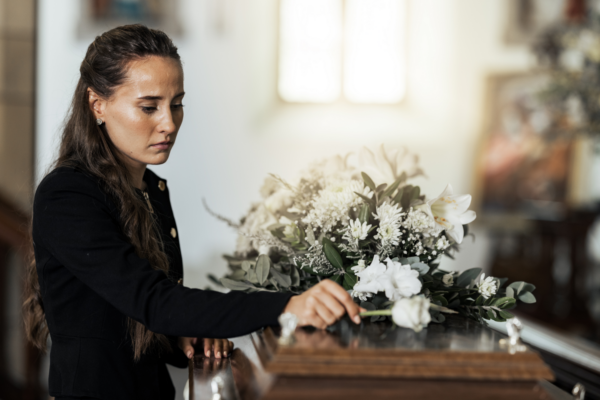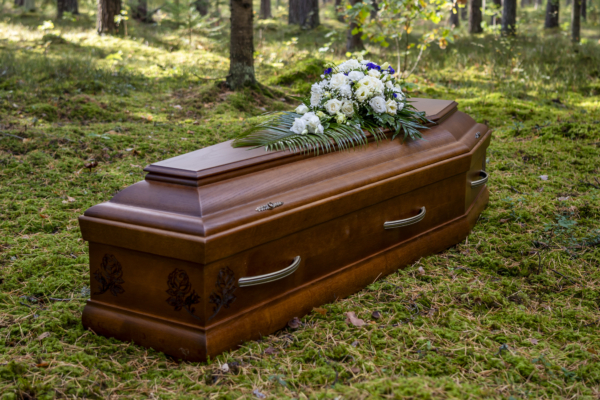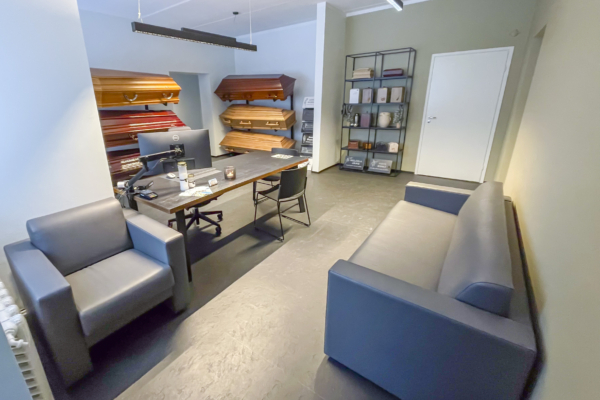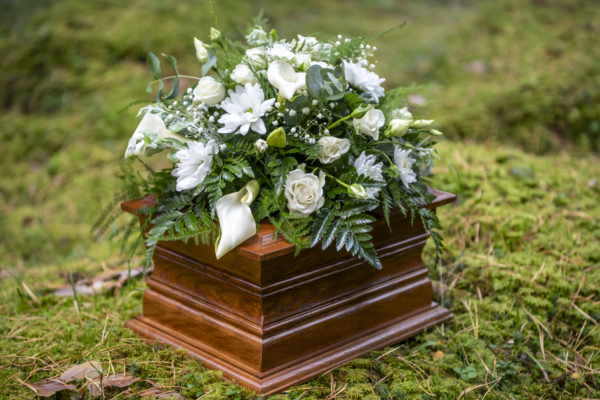What to do?
The first things to do are:
If the deceased is at home, someone must record their death. In a hospital, this is done by the hospital staff. In the case of a death that takes place at home, it is done by emergency medical staff or the family physician. Call the deceased’s family physician or 112.
By calling our 24-hour numbers, you can arrange for the transport of your loved one. Telephone numbers: 16669 (24h in Tartu) and 53032363 (24h in Põlva)
A death certificate will be issued to you either by the hospital or your family physician.
Our office in Tartu is located at Riia 5, Tartu 51010, and in Põlva at J. Käisi 3, Põlva 63305. With us, you can order funeral arrangements that are just right for you – cremation burial, or casket burial.
The loss of a loved one is one of life’s most difficult experiences. It can be an emotionally painful and complex situation that affects all aspects of a person’s life. Grief is a natural response to loss, and each person experiences grief in their own way. Here are some general thoughts on how you might experience the loss of a loved one:
- Shock and denial: Your initial reaction may be shock and denial. A person may experience difficulty believing or realising that their loved one has actually departed.
- Grief: Grief is a common and normal reaction to loss. It may be accompanied by intense emotions such as sadness, despair, anger, and guilt.
- Physical and emotional fatigue: Grief may be accompanied by physical and emotional fatigue. A person may feel weak, tired, or even suffer from physical symptoms such as sleep disturbances or changes in appetite.
- Feeling of emptiness: The loss of a loved one can leave a person with a sense of emptiness and loss. Everyday activities may seem pointless or difficult.
- Social isolation: Some people may experience a desire to remain isolated and avoid interacting with other people. At the same time, others may find support from family and friends.
- Long-term effects: The loss of a loved one can affect a person’s daily life, relationships, work, and general well-being. Some people may need professional help to cope with their grief and loss.
It is important to note that grief is an individual experience, and people experience it differently. The presence of supportive family, friends, or professionals can help one to cope with grief. If the symptoms of grief persist for a long time or become severe, it is advisable to seek professional help from a psychologist or therapist.




